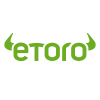Liquidity Crunch Spreads to Crypto Lending as Institutional Borrowers Max Out Credit Pools
Multiple crypto investment firms received a “warning” label on lending protocol Clearpool for draining almost the maximum amount of credit from their credit pools.



:quality(70)/cloudfront-us-east-1.images.arcpublishing.com/coindesk/XTMU6NCFHBGG5AUXC62GISSJRA.jpg )
:quality(70)/cloudfront-us-east-1.images.arcpublishing.com/coindesk/TIPBIVDQKZGEFPK2QDCVZA4Z3Q.jpg )
:quality(70)/cloudfront-us-east-1.images.arcpublishing.com/coindesk/YSZREJZLU5B73OI6MR6HP4HCVY.jpg )
:format(jpg)/cloudfront-us-east-1.images.arcpublishing.com/coindesk/63QGWL5LTBD3PCXUIQKUXHL2VM.jpg)
:format(jpg)/cloudfront-us-east-1.images.arcpublishing.com/coindesk/EJWJUYLSINBZTFGJMZSSS7SNPU.jpg)
:format(jpg)/cloudfront-us-east-1.images.arcpublishing.com/coindesk/RONYEB2JQ5A35FLPSB5QKK365U.jpg)